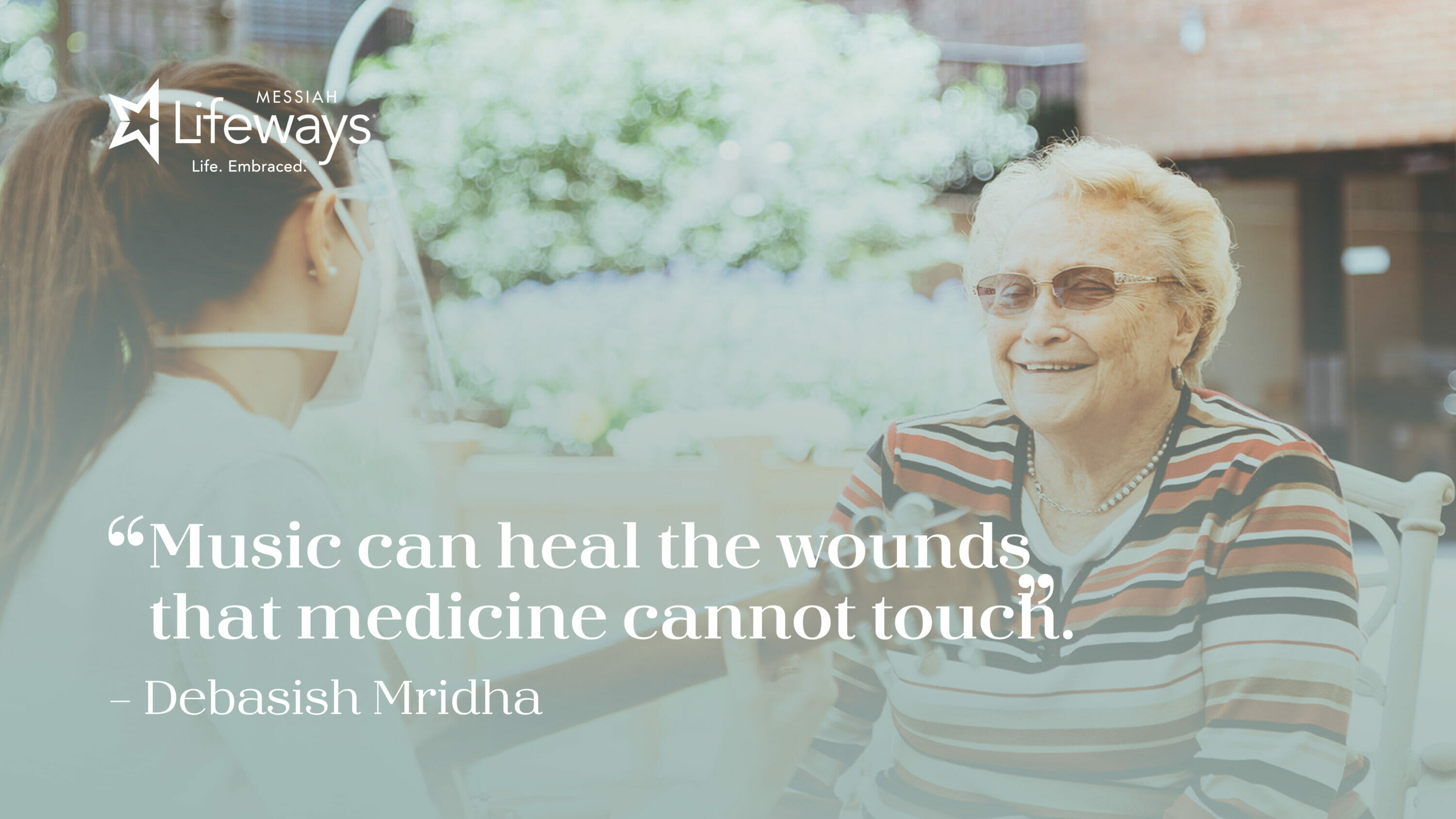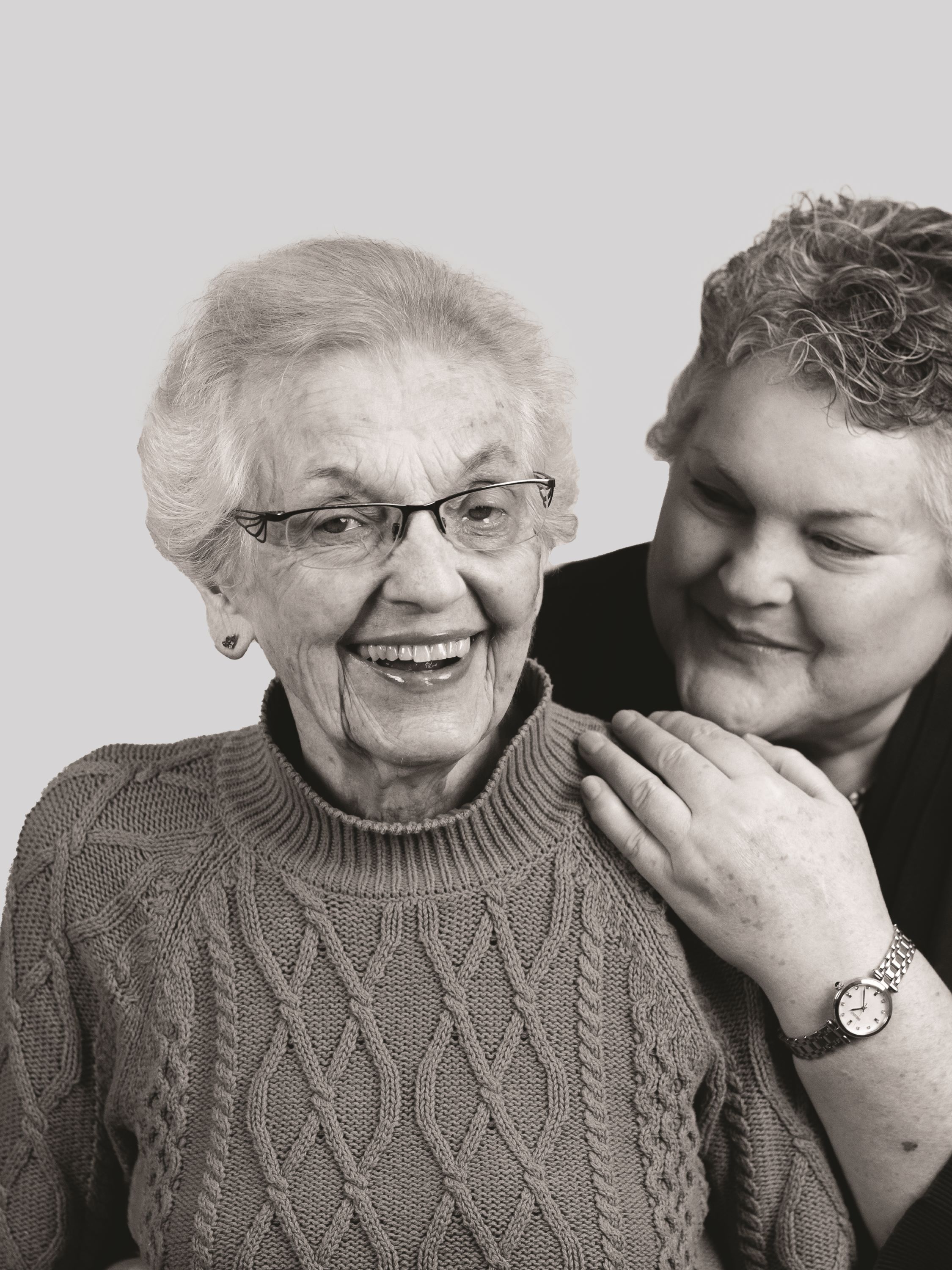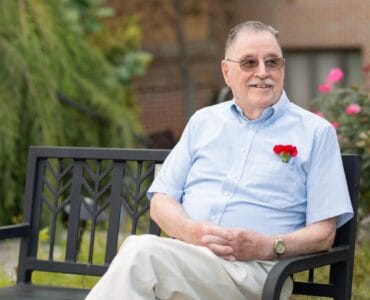With its aches and pains, unexpected diagnoses, and limitations, the aging journey can try the most positive of souls. That’s why programs and services like Music Therapy play an integral role, providing positive and constructive spaces for older adults to experience thriving in spite of their challenges.
Throughout their almost 63 years of marriage, Dick and Kay Dowhower have always had a deep appreciation for music—through participating in choir, holding season tickets to the symphony, and escaping for “binges on Broadway” (brief visits to New York City where they would squeeze in as many musicals as they could).
When they moved to Messiah Lifeways, Dick and Kay made a commitment to be involved in the array of programs and services available to them as residents.
Even as Dick’s health challenges have fast-tracked him through the continuum of care, which has led to their physical separation, Kay exhibits her deep commitment to him and his care with daily visits, accompaniment to various doctor appointments, and joining him for Music Therapy each week.
According to Kay, “Music therapy is good for us because of the interest in music we’ve always shared.”
The ‘Humble Courteousness’ of Music Therapists
Equally quick-witted, Dick and Kay both note the “therapeutic agenda” with which the music therapists approach their craft. Volunteers who come to play the piano or lead a hymn sing are an important part of the activities program, but music therapists have a more complex and comprehensive purpose.
Music therapists are specially trained to artfully navigate the variety of personalities in a given session and use music and instrumentation to meet each person’s unique needs. That skillful training is what elicits the evidence-based outcomes for those who participate, such as reduced muscle tension, improved self-esteem, decreased anxiety, memory recall, and more.
Dick notes each music therapist demonstrates a “humble courteousness” that attends to the gamut of personalities present at each session. They are quick to learn each participant’s name, creating an environment that personalizes the care for each individual and awakens their participation.
Transformational Impact
Each week Dick and Kay watch the quick switch that takes place for residents in his neighborhood who participate in Music Therapy. And they recognize that the leaders are harnessing the music and instrumentation to tease out “a brighter, fuller picture . . . than the moodiness that generally prevails.”
Dick’s litany of praise for the music therapists continues: “The high energy of the leaders and the positive reinforcement they give throughout each session sets a positive and energetic mood over the group.”
And, for him, it’s a personal transformation as well.
“There are times I may have remained in my room, but I’m located close to the action,” says Dick. Inevitably the energy and melodies lure him out to the group, and he is never disappointed.
Will you consider helping more older adults thrive through the ministry of Music Therapy programming? We need your help to provide continued access to Music Therapy and to expand that access to include more residents and clients in need of its therapeutic benefits.





